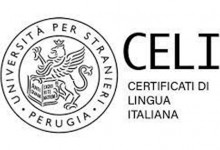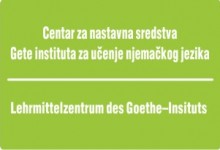Faculty of Philology / Translation Studies - Modul S1: English / THEORY OF TRANSLATION
| Course: | THEORY OF TRANSLATION/ |
| Course ID | Course status | Semester | ECTS credits | Lessons (Lessons+Exercises+Laboratory) |
| 4239 | Obavezan | 1 | 4 | 2++0 |
| Programs | Translation Studies - Modul S1: English |
| Prerequisites | A BA degree in the English language. |
| Aims | Becoming acquainted with the basic theoretical approaches to translation and their practical application and understanding better the complex and multifaceted nature of translation. |
| Learning outcomes | After passing the exam, the student will be able to: - recognise and explain the social role of translators and ethical issues implied in translation; - recognise the importance of translators' visibility in society and their own role in becoming visible; - explain and illustrate the connection between translation theory and practice; - use the appropriate metalanguage; - define, illustrate and discuss the basic theoretical approaches to translation; - analyse and compare translations, translators' choices, decisions and strategies and their implications with the application of basic theoretical knowledge. |
| Lecturer / Teaching assistant | Doc.dr Olivera Kusovac |
| Methodology | Lectures, exercises, discussions, student presentations. |
| Plan and program of work | |
| Preparing week | Preparation and registration of the semester |
| I week lectures | The concept of translation and translation studies |
| I week exercises | - |
| II week lectures | James Holmes: “The name and nature of translation studies” |
| II week exercises | - |
| III week lectures | Translation theory before the 20th century |
| III week exercises | - |
| IV week lectures | Traditional linguistic approaches to translation: the issue of equivalence (Catford, Nida) |
| IV week exercises | - |
| V week lectures | Traditional linguistic approaches: Newmark, Koller |
| V week exercises | - |
| VI week lectures | Mona Baker’s strategies (equivalence at word level); revision, exercises |
| VI week exercises | - |
| VII week lectures | Midretm exam |
| VII week exercises | - |
| VIII week lectures | New linguistic-oriented approaches: functional theories – Vermeer, Reiss |
| VIII week exercises | - |
| IX week lectures | Systems theories: Even-Zohar, Toury |
| IX week exercises | - |
| X week lectures | Cultural approaches: Venuti |
| X week exercises | - |
| XI week lectures | Poststructuralist, gender-based and postcolonial approaches |
| XI week exercises | - |
| XII week lectures | Makeup exam |
| XII week exercises | - |
| XIII week lectures | Translating specialized texts |
| XIII week exercises | – presentations |
| XIV week lectures | Translating literature |
| XIV week exercises | – presentations |
| XV week lectures | Audio-visual translation |
| XV week exercises | - presentations |
| Student workload | per week 4 credits x 40/30 = 5 hours and 20 minutes Structure: - 2 hours of lectures and discussions - 3 hrs 20mins of individual work per semester Classes and final exam 5hrs 20mins x 16 = 85 hrs and 20mins Necessary preparation before the beginning of the semester (administration) 2 x 5hrs 20mins = 10 hrs 40mins Total load for the course 4 x 30 = 120 hours Additional work for preparation of exams in the make up examination term of 0 do 30 hours (remaining time from the first two items out of the total workload for the course). Structure of the workload 85 hrs 20mins (classes) + 10 hrs 40mins (preparation) + 24 hrs (additional work) |
| Per week | Per semester |
| 4 credits x 40/30=5 hours and 20 minuts
2 sat(a) theoretical classes 0 sat(a) practical classes 0 excercises 3 hour(s) i 20 minuts of independent work, including consultations |
Classes and final exam:
5 hour(s) i 20 minuts x 16 =85 hour(s) i 20 minuts Necessary preparation before the beginning of the semester (administration, registration, certification): 5 hour(s) i 20 minuts x 2 =10 hour(s) i 40 minuts Total workload for the subject: 4 x 30=120 hour(s) Additional work for exam preparation in the preparing exam period, including taking the remedial exam from 0 to 30 hours (remaining time from the first two items to the total load for the item) 24 hour(s) i 0 minuts Workload structure: 85 hour(s) i 20 minuts (cources), 10 hour(s) i 40 minuts (preparation), 24 hour(s) i 0 minuts (additional work) |
| Student obligations | Regular attendance, reading assignments, preparing a presentation, active participation in discussions, one midterm and one final exam. |
| Consultations | By email at any time and in the office according to the schedule set on a year-to-year basis |
| Literature | Munday, J. Introducing Translation Studies: Theories and Applications, 2001 (pp.1-161) Bassnett, S. Translation Studies (1980/2002) Additional material: Baker. M. (1996) In Other Words (1992) |
| Examination methods | - attendance – 5 points - assigned texts – 5 points - presentation – 10 points - midterm exam – 35 points - final exam – 45 points |
| Special remarks | |
| Comment |
| Grade: | F | E | D | C | B | A |
| Number of points | less than 50 points | greater than or equal to 50 points and less than 60 points | greater than or equal to 60 points and less than 70 points | greater than or equal to 70 points and less than 80 points | greater than or equal to 80 points and less than 90 points | greater than or equal to 90 points |
Faculty of Philology / Translation Studies - Modul S1: English / BASICS OF ECONOMICS
| Course: | BASICS OF ECONOMICS/ |
| Course ID | Course status | Semester | ECTS credits | Lessons (Lessons+Exercises+Laboratory) |
| 4245 | Obavezan | 2 | 4 | 2++0 |
| Programs | Translation Studies - Modul S1: English |
| Prerequisites | None |
| Aims | Understanding basic economic terminology with ability in translating economic texts. |
| Learning outcomes | After successful completion of the course, students will be able to generalize fundamental economic thematic areas, differentiate between macro and micro economics, classify companies, compare market models, money functions, types of monetary, fiscal and trade policies, explain financial institutions and innovations, foreign exchange markets and exchange course, explain and compare functioning of international institutions and draw conclusions on economic integrations. The most important aspect of studying is formulating the mentioned aspects of economics in English, which implies learning of adequate economic terminology. |
| Lecturer / Teaching assistant | Dr Slobodan Lakić (professor) |
| Methodology | Classical teaching methods |
| Plan and program of work | |
| Preparing week | Preparation and registration of the semester |
| I week lectures | An Introduction to Economics |
| I week exercises | |
| II week lectures | Fundamentals of Economic Behaviour |
| II week exercises | |
| III week lectures | Firm |
| III week exercises | |
| IV week lectures | Economic System |
| IV week exercises | |
| V week lectures | Economic Piolicy |
| V week exercises | |
| VI week lectures | Money and Credit |
| VI week exercises | |
| VII week lectures | Public Finance |
| VII week exercises | |
| VIII week lectures | Banking |
| VIII week exercises | |
| IX week lectures | Financial Markets |
| IX week exercises | |
| X week lectures | Financial Innovation |
| X week exercises | |
| XI week lectures | International Finance |
| XI week exercises | |
| XII week lectures | International Financial Institutions |
| XII week exercises | |
| XIII week lectures | Eurioean Economic and Monetary Union |
| XIII week exercises | |
| XIV week lectures | John Maynard Keynes and Milton Friedman |
| XIV week exercises | |
| XV week lectures | Actual economicc themes |
| XV week exercises |
| Student workload | |
| Per week | Per semester |
| 4 credits x 40/30=5 hours and 20 minuts
2 sat(a) theoretical classes 0 sat(a) practical classes 0 excercises 3 hour(s) i 20 minuts of independent work, including consultations |
Classes and final exam:
5 hour(s) i 20 minuts x 16 =85 hour(s) i 20 minuts Necessary preparation before the beginning of the semester (administration, registration, certification): 5 hour(s) i 20 minuts x 2 =10 hour(s) i 40 minuts Total workload for the subject: 4 x 30=120 hour(s) Additional work for exam preparation in the preparing exam period, including taking the remedial exam from 0 to 30 hours (remaining time from the first two items to the total load for the item) 24 hour(s) i 0 minuts Workload structure: 85 hour(s) i 20 minuts (cources), 10 hour(s) i 40 minuts (preparation), 24 hour(s) i 0 minuts (additional work) |
| Student obligations | None |
| Consultations | Once a week |
| Literature | Textbook Foundation of Economics, Dr Slobodan Lakić |
| Examination methods | Mui-term text, written exam |
| Special remarks | None |
| Comment | None |
| Grade: | F | E | D | C | B | A |
| Number of points | less than 50 points | greater than or equal to 50 points and less than 60 points | greater than or equal to 60 points and less than 70 points | greater than or equal to 70 points and less than 80 points | greater than or equal to 80 points and less than 90 points | greater than or equal to 90 points |











